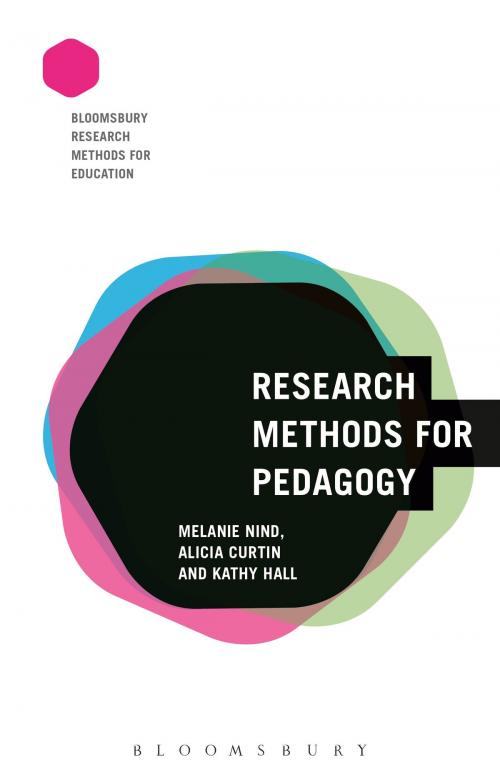Research Methods for Pedagogy
Nonfiction, Reference & Language, Study Aids, Tests, Education & Teaching, Teaching, Teaching Methods| Author: | Prof. Melanie Nind, Dr Alicia Curtin, Professor Kathy Hall | ISBN: | 9781474242837 |
| Publisher: | Bloomsbury Publishing | Publication: | October 6, 2016 |
| Imprint: | Bloomsbury Academic | Language: | English |
| Author: | Prof. Melanie Nind, Dr Alicia Curtin, Professor Kathy Hall |
| ISBN: | 9781474242837 |
| Publisher: | Bloomsbury Publishing |
| Publication: | October 6, 2016 |
| Imprint: | Bloomsbury Academic |
| Language: | English |
Aspects of pedagogy are frequently researched, but the concept itself is poorly understood. More than just teaching and learning, pedagogy is about values, identities, relationships and interactions bounded by context. As such, researchers of pedagogy face the challenge of working out what constitutes pedagogical texts, data or evidence, and how these can be generated and understood.
Research Methods for Pedagogy begins by exploring the different conceptualisations of pedagogy and their implications for how it is researched. The authors reflect on how their sociocultural stance on pedagogy influences the methods they choose to focus on in the book. Moving beyond just schools and formal pedagogies into informal and everyday pedagogies, the authors use a range of case studies across educational sectors and cultures to discuss methods for researching pedagogy. Common approaches such as ethnography and action research are included alongside some quantitative and quasi-experimental methods and often less familiar participatory, multimodal and reflective methods. The authors demonstrate the relationships between theoretical stance, pedagogical context and research approach. Finally, the book addresses the complexity of pedagogy research through discussion of particular ethical and relational aspects as it highlights innovations and developments in research methods for pedagogy.
Boxed case studies, reflections on real research projects, a glossary of key terms and an annotated list of further reading all help to guide students and scholars through their research design and choice of methods in this area.
Aspects of pedagogy are frequently researched, but the concept itself is poorly understood. More than just teaching and learning, pedagogy is about values, identities, relationships and interactions bounded by context. As such, researchers of pedagogy face the challenge of working out what constitutes pedagogical texts, data or evidence, and how these can be generated and understood.
Research Methods for Pedagogy begins by exploring the different conceptualisations of pedagogy and their implications for how it is researched. The authors reflect on how their sociocultural stance on pedagogy influences the methods they choose to focus on in the book. Moving beyond just schools and formal pedagogies into informal and everyday pedagogies, the authors use a range of case studies across educational sectors and cultures to discuss methods for researching pedagogy. Common approaches such as ethnography and action research are included alongside some quantitative and quasi-experimental methods and often less familiar participatory, multimodal and reflective methods. The authors demonstrate the relationships between theoretical stance, pedagogical context and research approach. Finally, the book addresses the complexity of pedagogy research through discussion of particular ethical and relational aspects as it highlights innovations and developments in research methods for pedagogy.
Boxed case studies, reflections on real research projects, a glossary of key terms and an annotated list of further reading all help to guide students and scholars through their research design and choice of methods in this area.















